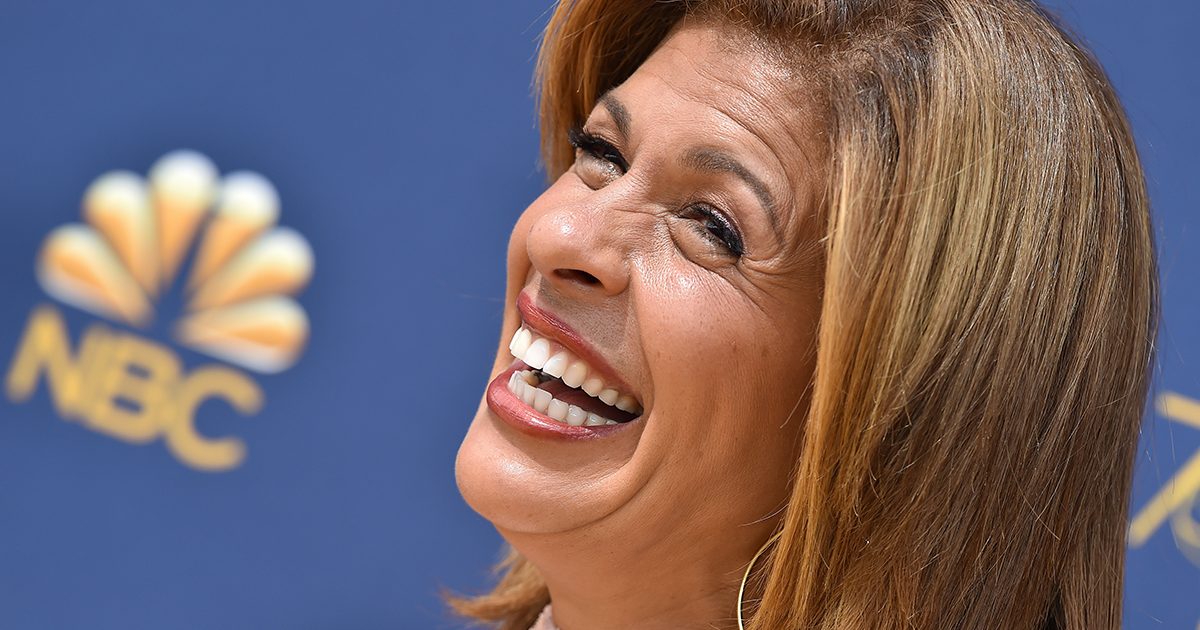Moving Forward As A Cancer Survivor
- TODAY host Hoda Kotb recently shared that she will date again after announcing her split from her ex-fiancé earlier this year.
- Kotb, 57, was diagnosed with breast cancer in February 2007 at age 43 after doctors discovered lumps in her breast tissue during a routine exam. She then underwent a mastectomy and reconstruction followed by five years of taking the drug tamoxifen (Nolvadex).
- Breast cancer is a common cancer that has been the subject of much research, so there are many treatment options out there. Mammograms, a standard screening procedure for breast cancer, and self breast exams can save lives.
Kotb and Schiffman got engaged in November 2019 after spending six years together. But in January, Kotb shared the two had called off their engagement. The two still co-parent their daughters Haley, 5, and Hope, 3.
Read More"I haven't really thought about who I would see myself with, but I do have to say something," she said. "My sister even said and asked me at one point, 'Are (you) afraid to be by yourself?' And I said to her, 'I'm not going to be by myself.'
“And I don't know why I said it so clearly, but I actually knew that my heart is open. I have an open heart."
She then went on to say that she’s not sure how soon she’ll be back in the game, but it will be “at some point.”
"I can see it, it will happen,” Hoda said. “When? I can't say but I assured her I said, 'Oh, don't worry. No worries. I said I'm going to be just fine.'"
Hoda Kotb's Breast Cancer Journey
Kotb received her breast cancer diagnosis in February 2007 after doctors discovered lumps in her breast tissue during a routine exam. She was 43 at the time and underwent a mastectomy and reconstruction followed by five years taking the drug tamoxifen (Nolvadex).
"Cancer shaped me, but it did not define me. It's part of me, but not all of me," Kotb said at an annual Breast Cancer Research Foundation New York Symposium and Awards Luncheon in 2017.
She's still cancer-free today, but Kotb has since opened up about her fertility struggles following her breast cancer battle.
"I remember that my oncologist called, and we were talking about freezing my eggs," Kotb told Good Housekeeping. "She basically said that given my age and (my breast cancer treatment), it was pretty close to a dead-end."
Her reaction was, understandably, filled with sorrow. And at that moment, she doubted she'd ever realize her dream of becoming a mother.
"I was in my room, and I just sobbed. I thought, 'Well, that's that, isn't it?,'" Kotb said. "Like, you almost blame yourself. 'Why didn't I do this? Why didn't I do that?' So I just pushed it away because the reality seemed impossible to bear.
"How do you survive knowing you can't have what you desire and what you feel like you actually physically need?"
Dr. Terri Woodard discusses your options for preserving fertility after a cancer diagnosis
But fast forward to today, and Kotb loves taking care of her two girls: Haley and Hope. She adopted Haley in 2017 and Hope two years later. And she thanks her now ex-fianceÌ, Joel Schiffman, for providing the support she needed to become a mother.
"I don't think I would've adopted if it hadn't been for Joel," she said of Schiffman. "Having a stable relationship in that moment was really important. Once that fell into place, it didn't seem as scary to me."
Understanding Breast Cancer
Breast cancer is a common cancer that has been the subject of much research. Many women develop breast cancer every year, but men can develop this cancer too though it is more rare, in part, due to the simple fact that they have less breast tissue.
There are many treatment options for people with this disease, but treatment depends greatly on the specifics of each case. Identifying these specifics means looking into whether the cancerous cells have certain receptors. These receptors the estrogen receptor, the progesterone receptor and the HER2 receptor can help identify the unique features of the cancer and help personalize treatment.
"These receptors, I like to imagine them like little hands on the outside of the cell, they can grab hold of what we call ligands, and these ligands are essentially the hormones that may be circulating in the bloodstream that can then be pulled into this cancer cell and used as a fertilizer, as growth support for the cells," Dr. Elizabeth Comen, a medical oncologist at Memorial Sloan Kettering Cancer Center, previously told SurvivorNet.
The Unique Features of Breast Cancer: Deciding the Right Course of Treatment
One example of a type of ligand that can stimulate a cancer cell is the hormone estrogen, hence why an estrogen receptor positive breast cancer will grow when stimulated by estrogen. For these cases, your doctor may offer treatment that specifically targets the estrogen receptor. But for HER2 positive breast cancers, therapies that uniquely target the HER2 receptor may be the most beneficial.
Learn more about SurvivorNet's rigorous medical review process.


